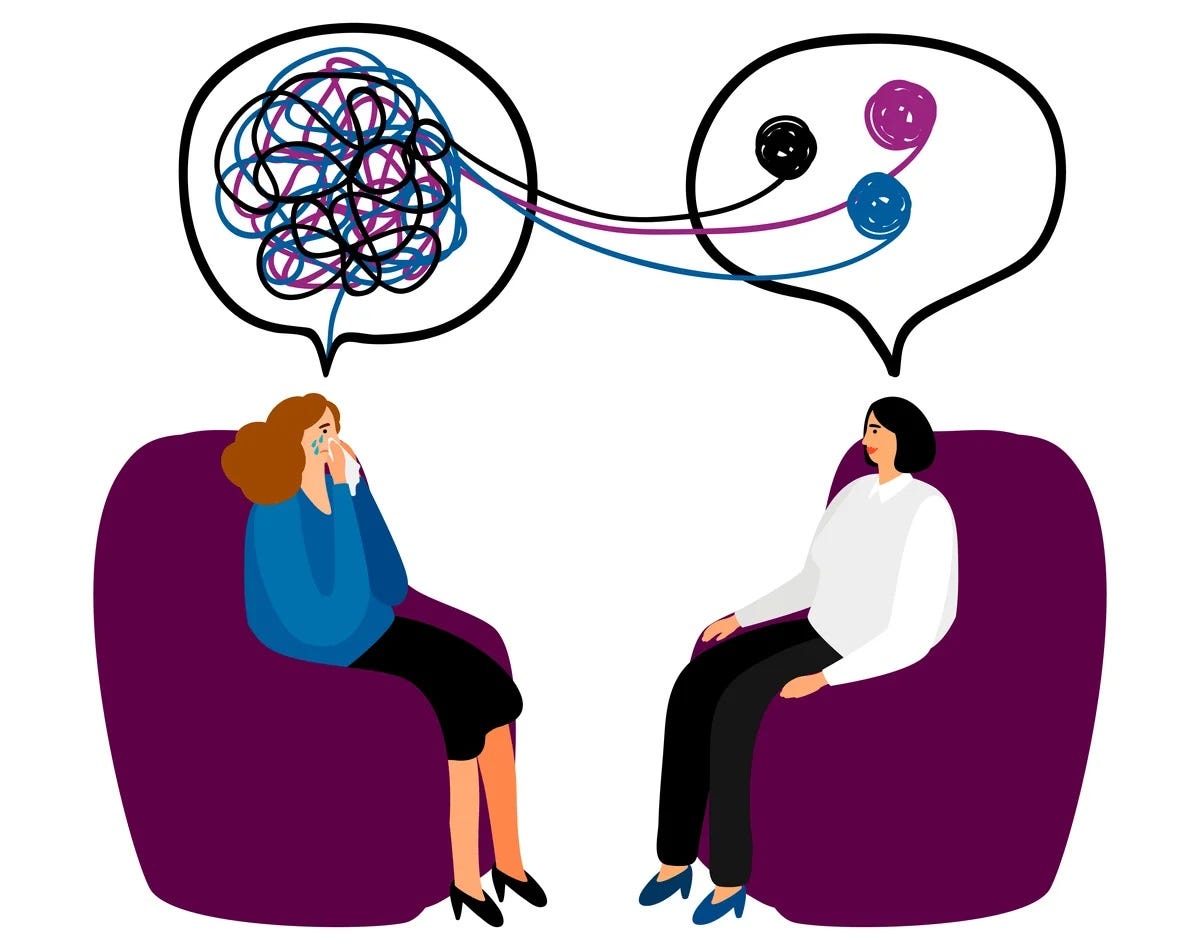Table of Contents
Introduction To a Recovery Process
Recovery involves an important process: Detox Rehab and Wellness. First, detox helps the body get rid of toxins. Then, rehab provides mental and emotional healing. Wellness maintains healthy habits long-term. Each stage has its difficulties and achievements. We’ll explore these phases, giving advice for those recovering or supporting others. Keep reading to discover steps for a healthier life.
The Role of Nutrition and Exercise in Recovery.
Overcoming addiction to drugs or alcohol is no simple task. It needs proper food and scheduled physical activity. But the journey also involves many other components. Nutrition and exercise are critical catalysts in the rejuvenation process, restoring much of the physical health which addiction undermine. This article will examine how nutrition and exercise influence recovery, support the system with its repair, and promote long-term wellness.
Nutritional Knitting for Recovery
Abusing drugs or alcohol can strip the body of essential nutrients. This makes people prone to many physical problems. Their immune systems may weaken, and they may feel tired. Health can suffer greatly when substances abuse occurs. Rebuilding these nutrients during the initial detoxification phase is essential. Nutritional intervention begins by furnishing the body with essential vitamins and minerals.
These not only help in metabolic processes, but also promote good physical health. As people move to inpatient rehabilitation, nutrition is used to stabilize mood and alleviate energy levels so clients find it easier to take part in therapy or other forms of on going treatment. Nutrition education becomes an important part of the program, teaching people how to make better food choices and set up routines with recovery in mind.
Setting Recovery Ablaze With Exercise

Concurrent with nutritional rebuilding, physical activity is introduced as a major element of effective recovery strategies. From the first day of a client’s stay at detox-routine exercises may begin. Gradually over time physical condition is restored and mental alertness restored. With the body now beginning to recover, more structured exercise routines are incorporated during inpatient rehabilitation to further enhance physical health and my mental well-being.
Exercise continues to be an important factor in therapeutic interventions, outpatient treatment, and support groups. Regular physical activity helps manage stress and the craving for substances or food. It is a possible remedy for psychological imperfections like depression or anxiety. It fosters a sense of regularity, duty, and completion, which are all key aspects of a successful recovery process.
Preserving Recovery Strategies as Tactics
In the transition to long-term recovery, keeping a sound diet and continuing an exercise regimen becomes crucial. These strategies for wellness are not only aimed at keeping people from falling back into addiction. By maintaining the twin priorities of nutrition and exercise, people both reinforce commitment to sobriety and enrich the entire quality of their lives.
Bringing nutrition and exercise into recovery programs is not just nice, it is essential. More and more drug rehab centers such as those pioneered in Ohio are beginning to recognize the importance of these elements on general health. They are beginning to include them in their holistic treatment plans. Proper nutrition and regular exercise at the heart of an integrated plan provide an opportunity to build not only a recovering system but also a flourishing future one.
The First Step in Recovery

Detox is the starting point of healing. It involves clearing your body of dangerous drugs built up over time. This first step helps deal with physical issues from stopping drugs. But it’s just the base for a full recovery plan. The process of detox often leaves people with a range of withdrawal symptoms. These knock-on can vary in their depth and nature according to the drug or drugs used. These symptoms include such things as nausea , anxiety , sleep disturbances and greatly discomfort. All these symptoms reflect the body’s reliance on drugs.
It struggled to regain a healthy balance. But for the person who’s addicted to either opiates , benzodiazepines or alcohol, withdrawal can be major. The symptoms can become very strong at short notice, so it is very important to go through detox in a professional setting. In such cases, entering a reliable inpatient drug rehabilitation program often provides the necessary medical supervision and structured care to ensure safety and comfort throughout the detox process.
The Role of Medically Supervised Detox Programs
As detoxification is complicated, many rehabilitation centers provide detox programs that are medically supervised .Designed to deliver a comfortable and secure environment for those who are setting out on their path to recovery. The medical staff at these centers play a critical role. Not only do they have the responsibility of looking after the physical and psychological symptoms of withdrawal, but they also have to prevent and overcome any complications that may arise. They provide for constant monitoring and immediate intervention, which is crucial to preventing serious health hazards during detox.
The Importance of Professional Care During Detox
Not only does medically supervised detox manage the symptoms it also handles emotional and mental support. With care givers on call twenty-four hours a day, patients can count on personalized attention for dealing with the stress and anxiety that often accompany withdrawal. This kind of care is very important in minimizing the risks associated with detox, which grow from unpleasant symptoms all the way up to life-threatening conditions. The aim is to ensure that detoxification is not only successful but also as safe as possible, in order that it sets the stage for the subsequent phases of recovery.
Detox, though hard, is a necessary phase in healing. It is the base for the journey through recovery, laying the ground for therapeutic work at rehabilitation. To rid the body of poisons and manage withdrawal symptoms in a controlled environment, detox builds bridges to successful recovery.
Second Step to Recovery: Transitioning to Inpatient Rehabilitation
Inpatient rehabilitation provides a focused, supportive environment entirely devoted to now living poison free. Those who need to remove themselves from the potential distractions and triggers present in their everyday environment are most in need of this stage.
To support recovery fully, inpatient rehabilitation facilities such as those commonly found in Florida or Ohio now provide an environment for healing. No outside interruptions will interfere—people here can concentrate on getting well. In this fully controlled atmosphere, addicts can readily adapt to their new life without substances stolen to replace one unnecessary moment or thought.
These facilities offer a full array of therapies addressing both the physical and psychological aspects of addiction. The integrated care offered by these programmes helps people get to the root of their addiction problems, enabling them to control their behavior and breakdowns better. This comprehensive approach is vital, because it ensures that not only the mind but also one’s very body are treated.
Building Community Support
One of advantages of inpatient rehabilitation is the community aspect. Patients are surrounded not only by staff but their peers all of whom are travelers on the road to recovery. Such a group environment is invaluable in providing encouragement and understanding, which greatly enhances the healing process. Learning from those in similar conditions close at hand provides valuable insights and shared experiences that can help reinforce one’s progress towards sobriety.
During their stay, people learn different coping techniques and practice forming good habits which will help maintain the results of rehabilitation. Training of many kinds such as stress management and conflict resolution, all crucial techniques for any person who wants to keep sober outside of an environment likely that supports abuse are taught in the structured programs of rehab. Also, the effect of the structured nature of the program has an inbuilt accountability to help people continue striving for their goals of recovery.
Laying the Groundwork for a Long term Recovery
Inpatient rehabilitation is not a phase but a life transforming experience establishing the solid foundation beneath which long term recovery will take place. Through structured environment, comprehensive therapies and supportive community networks, inpatient rehab provides patients with a means by which they can set their lives free from addiction. The purpose is thus to establish habits and standards of conduct that are indispensable once an individual leaves rehab–in order to press forward toward freedom from addiction.
Third step: Therapeutic Interventions into Inpatient Care
As an essential part of inpatient rehab, therapeutic interventions are well adapted to dive deep below the surface causes of many addicts. These can be anything from childhood trauma, past mental illnesses and environmental pressures right through to hitting rock bottom due to alcoholism. Effective therapy must begin with a pursuit of the root causes of addiction. As crucial as this exploration is, it lets people see for themselves the root problems that led to their substance abuse. After openly dealing with these underlying factors clients can start to heal and lay down a track for living in recovery without substances.
Multifaceted Therapies

Therapeutic interventions come in many forms across different sites – be it at Ohio or a national level. These include for instance cognitive-behavioral therapy (CBT): the essence of which is helping its users recognize and alter negative thoughts; Motivational interviewing, another critical strategy that helps clients themselves to find motivation to change internally. Additionally, many facilities provide holistic therapies such as meditation, yoga, and art therapy–a comprehensive approach that supports the overall well-being of a person.
Therapeutic interventions are about more than simply dealing with the present. They provide individuals with long-term coping skills and strategies to deal effectively with triggers. Through therapy, clients learn how to develop a healthy self-image while gaining the necessary personal tools to meet life’s tests without turning back in drugs. These tools are invaluable to any program desiring sustainable recovery and an absence of relapse.
Personalized Treatment Plans
A crucial part of therapeutic interventions is to tailor treatment plans. Therapists and counsellors work together with individual clients, creating interventions that best fit their unique condition as well as help them reach specific recovery goals. This personal approach ensures for every patient that nothing goes to waste–proper care is offered each step of the way taking into account their particular challenges and strengths.
Inpatient therapeutic interventions are crucial for successful recovery. By looking at the root causes of addiction, equipping individuals with essential coping skills, and laying the groundwork for a sustainable and lasting recovery in this way-interventions set out to get clients to leave inpatient care feeling better about their addiction. With greater understanding strengthened by personalized therapeutic approaches, it also furnishes some tools from which to fight back should addiction rear its head again.
Step 4: Outpatient care and support group

After completing an intense phase of inpatient care, transitioning into everyday life is often a major hurdle. Outpatient drug rehabs provide a bridge over this gap by presenting continued care and support. This allows individuals to gradually return to their community and working environment while still being supported in important ways.
Outpatient programs aim to make sure that the recovery process from residential treatment centres continues without a hitch. These programmes typically include ongoing therapy sessions covering both the psychological issues surrounding addiction and practical strategies for daily living in sobriety. They are indispensable parts in reinforcing lessons learned during inpatient treatment and preventing relapse.
In addition, acknowledging that individuals in recovery have different needs and schedules, many outpatient facilities–including free of charge–offer flexible scheduling. This flexibility means that people can maintain their personal as well as professional responsibilities while receiving necessary treatment sessions. This enables them to pursue a balanced path of recovery.
The Importance of Support Groups in Outpatient Care
Support groups perform a big job after treatment ends. Groups like Alcoholics Anonymous or Narcotics Anonymous have meetings for people to attend. At these meetings, people recovering from addictions can meet others going through the same things. They can help keep each other strong by sharing stories and struggles. Support groups let people in recovery feel like they belong and that others understand them.
In these groups members share their experiences, problems and achievements. Each move to study how to live without alcohol or substances is a shared joy that renews one’s commitment to the new sober road. The most invaluable aids for those recovering are pals who understand your experience, and offer mutual guidance and support.
Laying the Groundwork for Long-Term Wellness
Outpatient care and support groups are both key parts in the recovery of patients. Indeed, they provide essential structures to enable individuals to apply the mechanisms learnt from therapy during real life situations. In participating in these programmes, individuals enhance their ability to remain drug-free and manage recovery alongside daily duties , laying a tough foundation for wellness over time.
Step 5: Long-Term Recovery and Wellness
Recovery from addiction may well last a lifetime. Thus, leading drug rehabs recognize the enduring nature of recovery. They seek to prepare people for long-term success and work closely with clients on continued aftercare programs that encompass sobriety support (honesty, integrity, abstinence) such as the successful Alcoholics Anonymous model.
The Contents of Effective Aftercare Programs
Aftercare is the crucial bridge between intensive treatment and real-world living. Aftercare programs usually include alumni groups; clients from years back who still keep a connection with one another and support each other to this day. The process produces a little society of mutual help that springs up among the former inmates. In the same way, the continuing-encounter care as a general rule has been a part of aftercare, giving root support in psychological terms and helping individuals to handle problems that come along during long-term recovery.
Moreover, aftercare often includes activities to promote wellness that are good for both body and soul. All efforts are made at prolonging the functions of responsible sobriety; since that aim is equally concerned with areas of physical and mental health, it may be understood that society as a whole rallies around those points which further their sobriety.
Making Support Available through Medicaid
Many drug rehabs accept Medicaid as a way of ensuring that economic circumstances do not hinder ongoing recovery for people in need. This inclusion guarantees that more people can access essential aftercare services without being overwhelmed by costs. By accepting Medicaid, these facilities create opportunity for a broader demographic to benefit from the ongoing support and resources essential to staying well.
In addition to mainstream therapeutic support, aftercare may include such options as sober living communities. Those communities often add structure and a generally drug-free setting for people in transition from treatment back to home life: they help support individuals who have escaped from the debilitating effects of drug abuse. What’s more, many outfitted services encourage people to become involved in the recovery community through mentorship or volunteer jobs. This type of participation doesn’t just assist others on their journey toward being free of disease, it also reinforces one’s own commitment to sobriety.
Creating a Solid Basis for Continuing Recovery
Continuous effort and support are required to provide the foundation for long-term recovery. Through well-designed after-care programmes, people are equipped with the tools necessary to negotiate life outside of addiction and with sustained support continues this season long into its days. These programmes are integral in stopping relapse and making environments where people can thrive in lasting sobriety, showing how support can not only assist recovery but also facilitate growth and well-being throughout one’s life span.
Conclusion: Offering Support as You Recuperate
After all, in the uphill struggle of recovering from addiction, support is a must. Our experienced team commits to providing anyone who wants to work at overcoming addiction with necessary resources and guidance that will help them get out from under this problem once and for all. We are there for physical pain, emotional turmoil, and psychological problems. With our support every person in recovery can come through this time alright.
In our world, seeking aid for addiction recovery proves essential. The ancient proverb rings true: “A village nurtures every child.” With proper backing, even the most afflicted can break free and embrace life’s boundless horizons. We are dedicated to helping people move toward the path of last- well-being and to rebuild their shattered lives.



